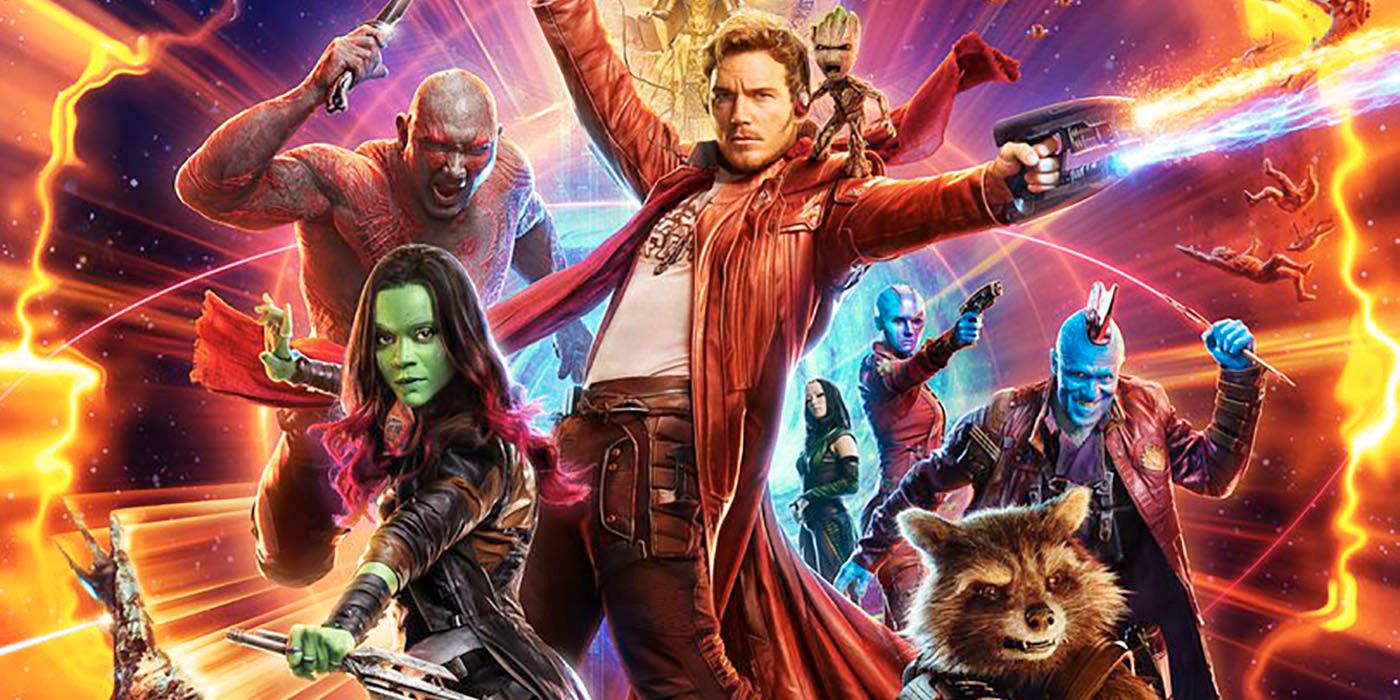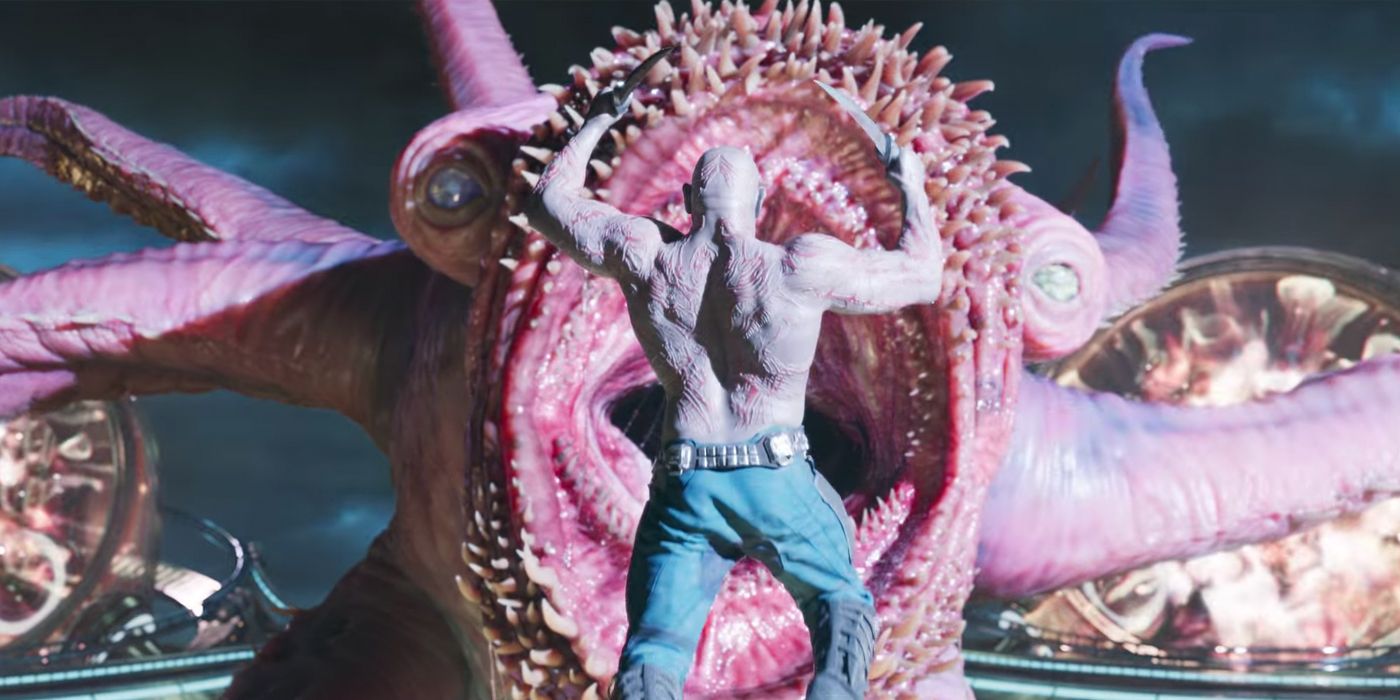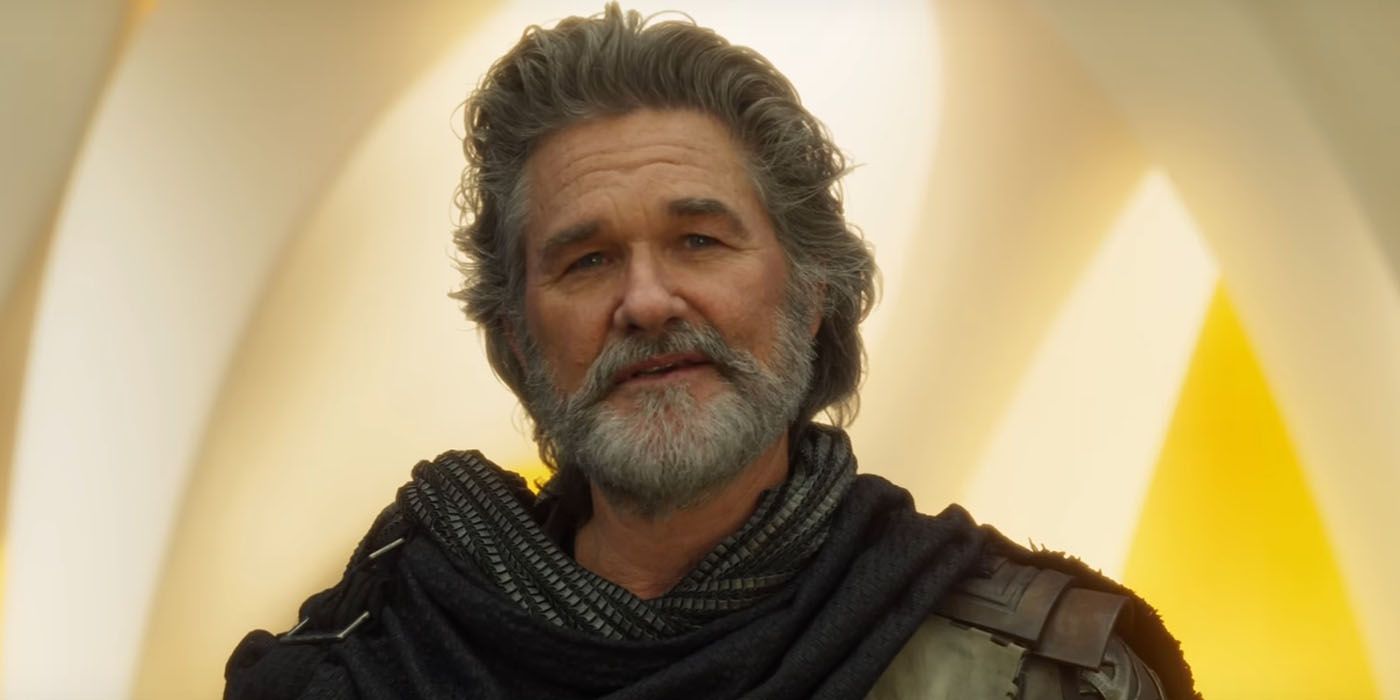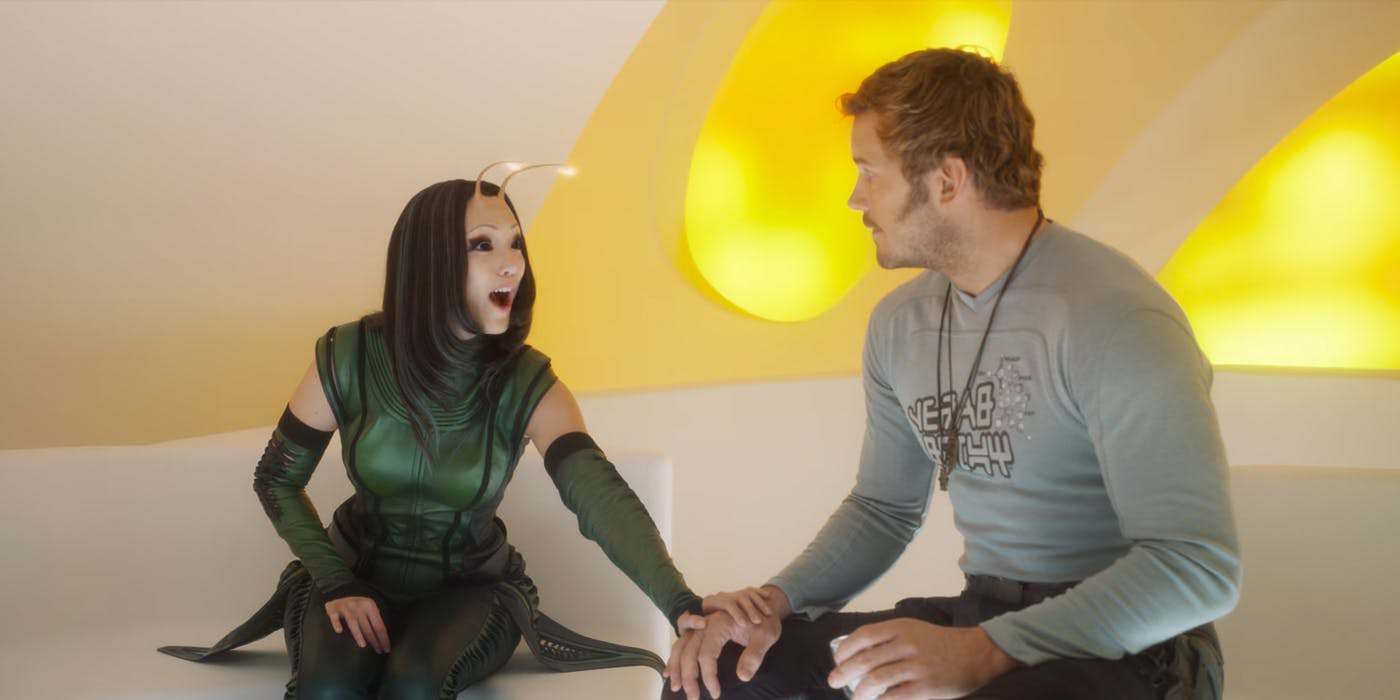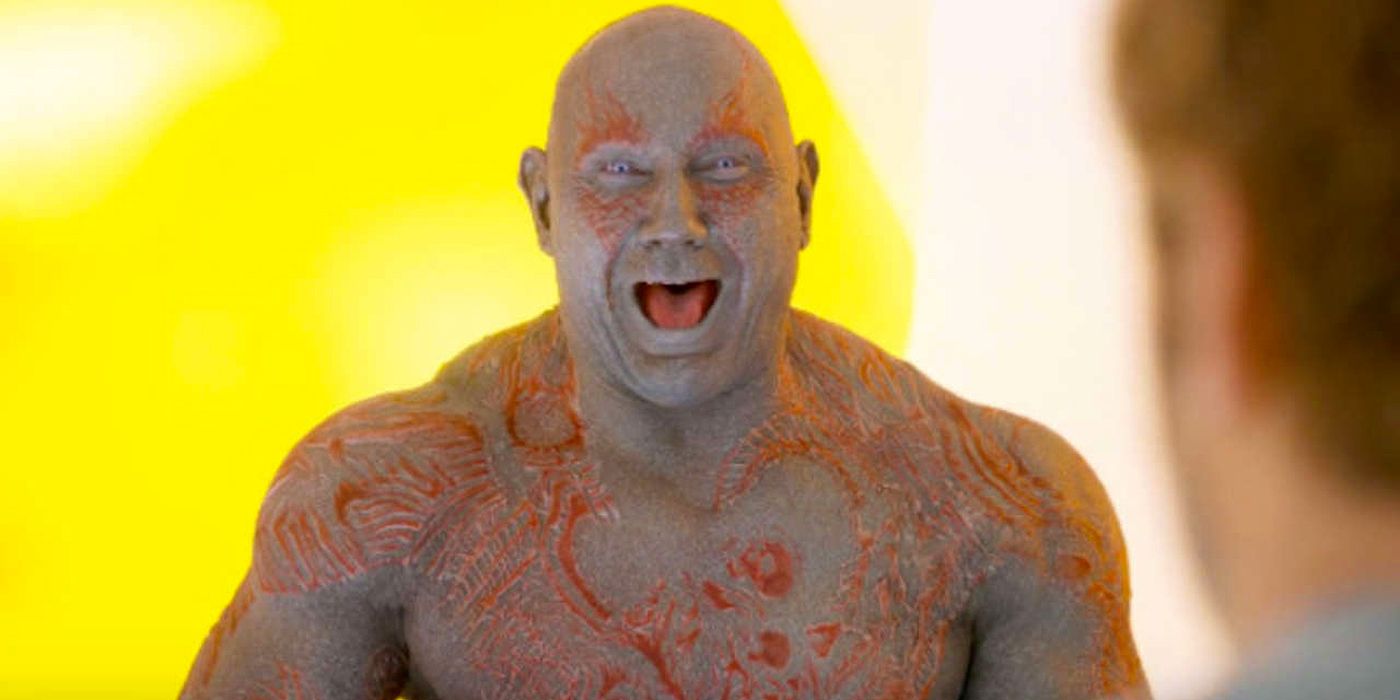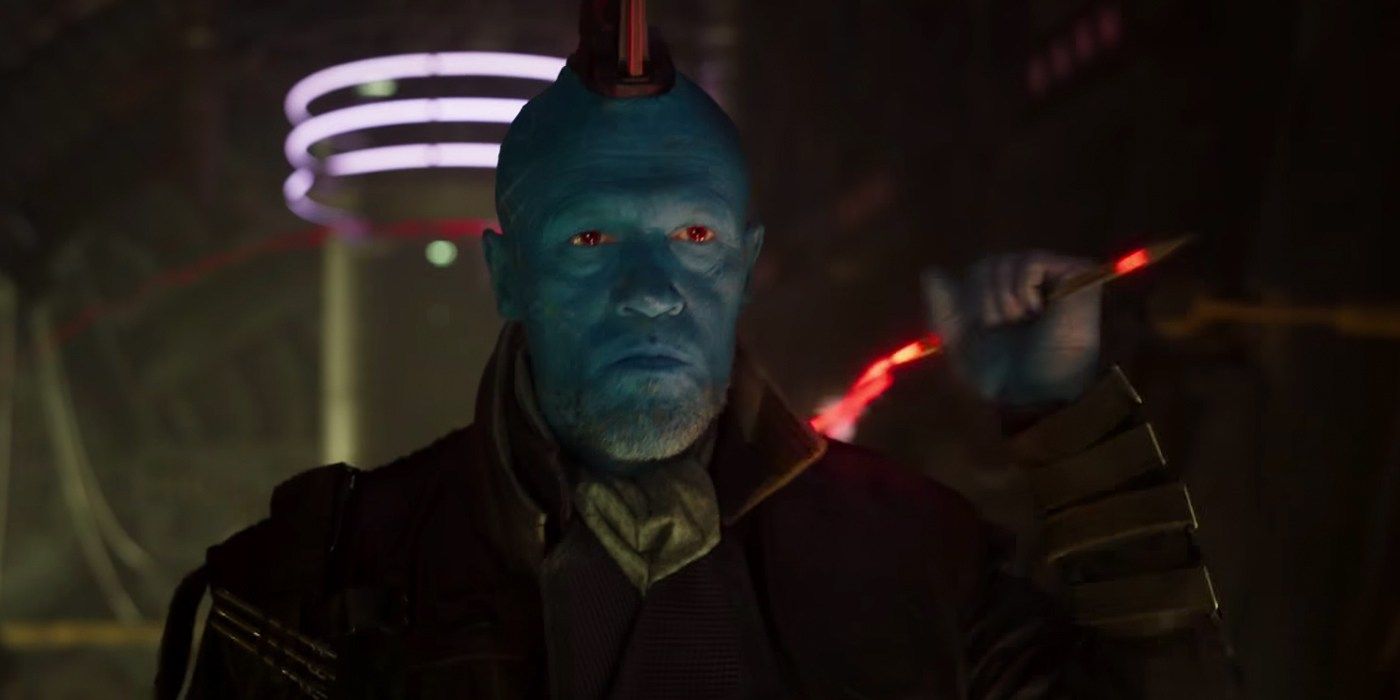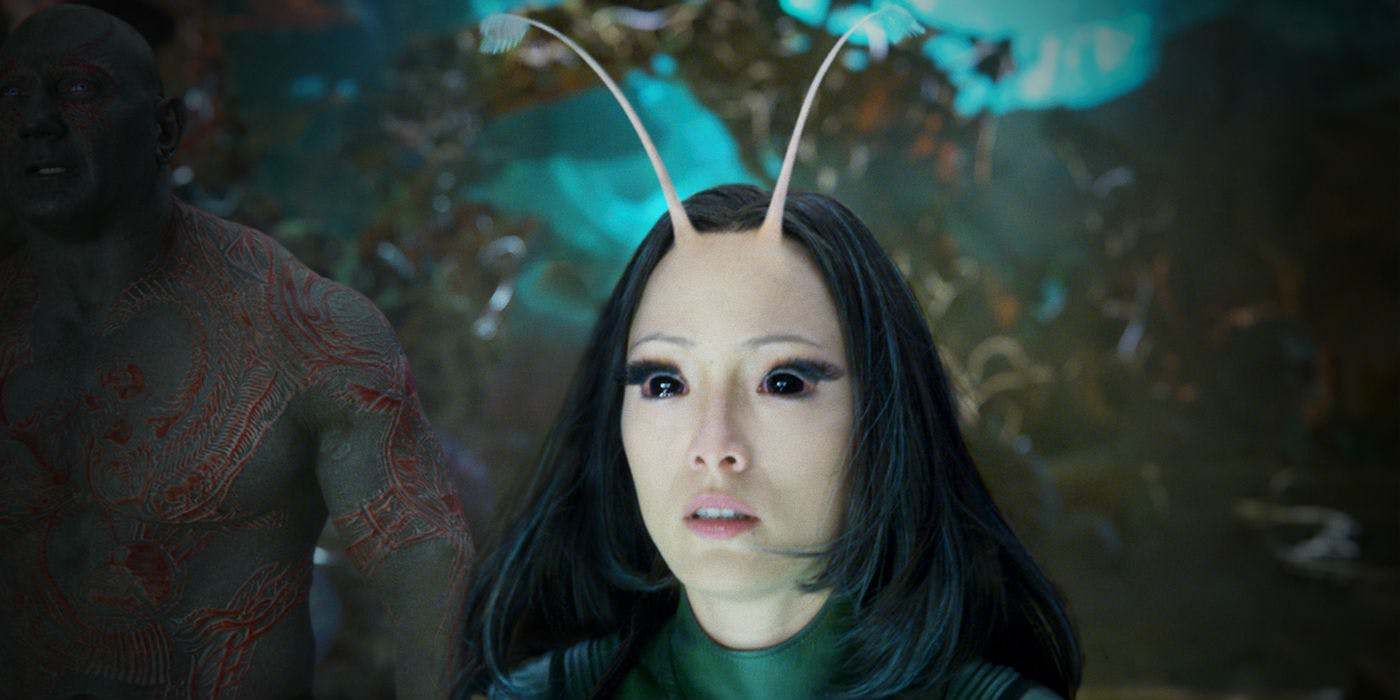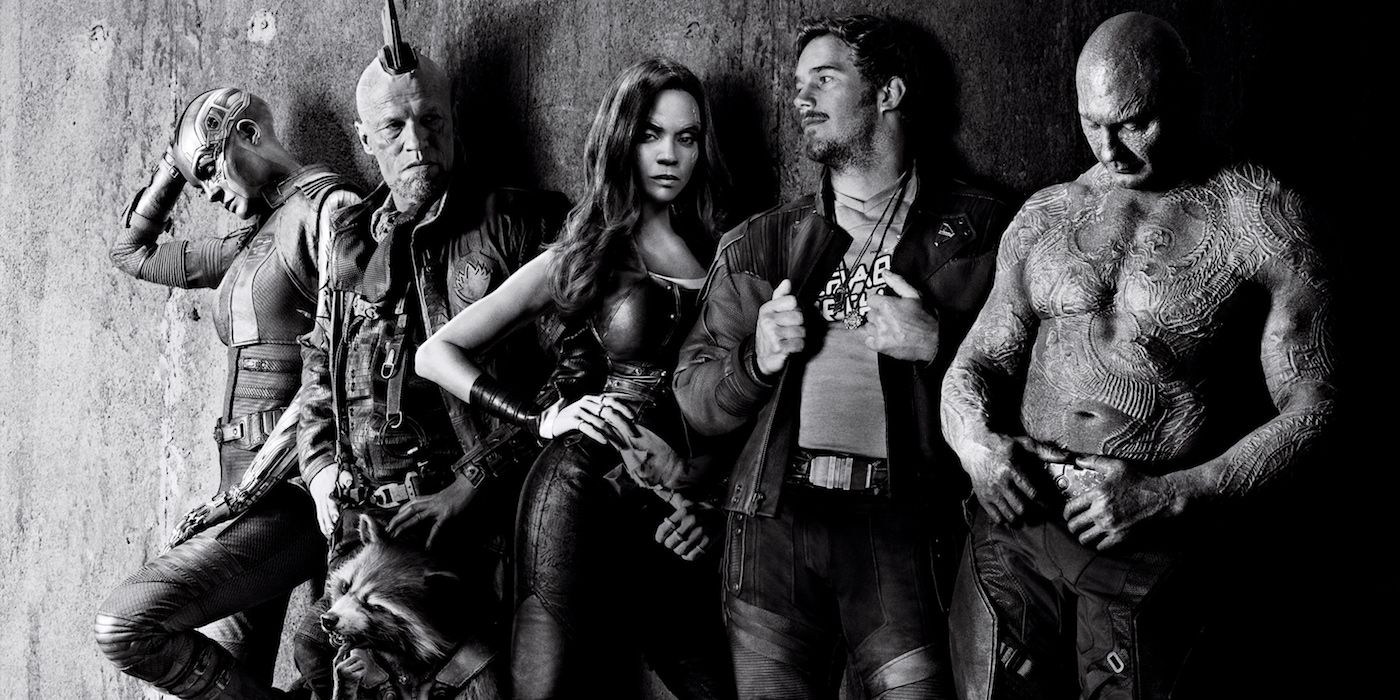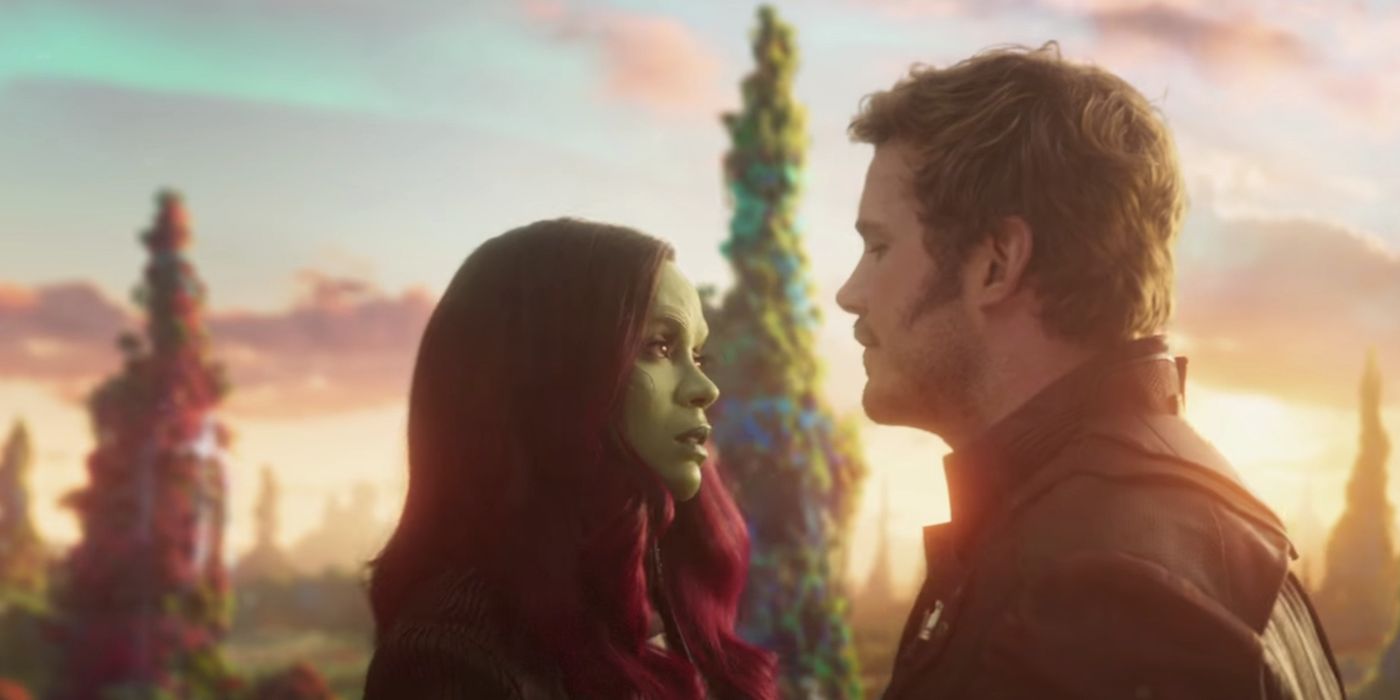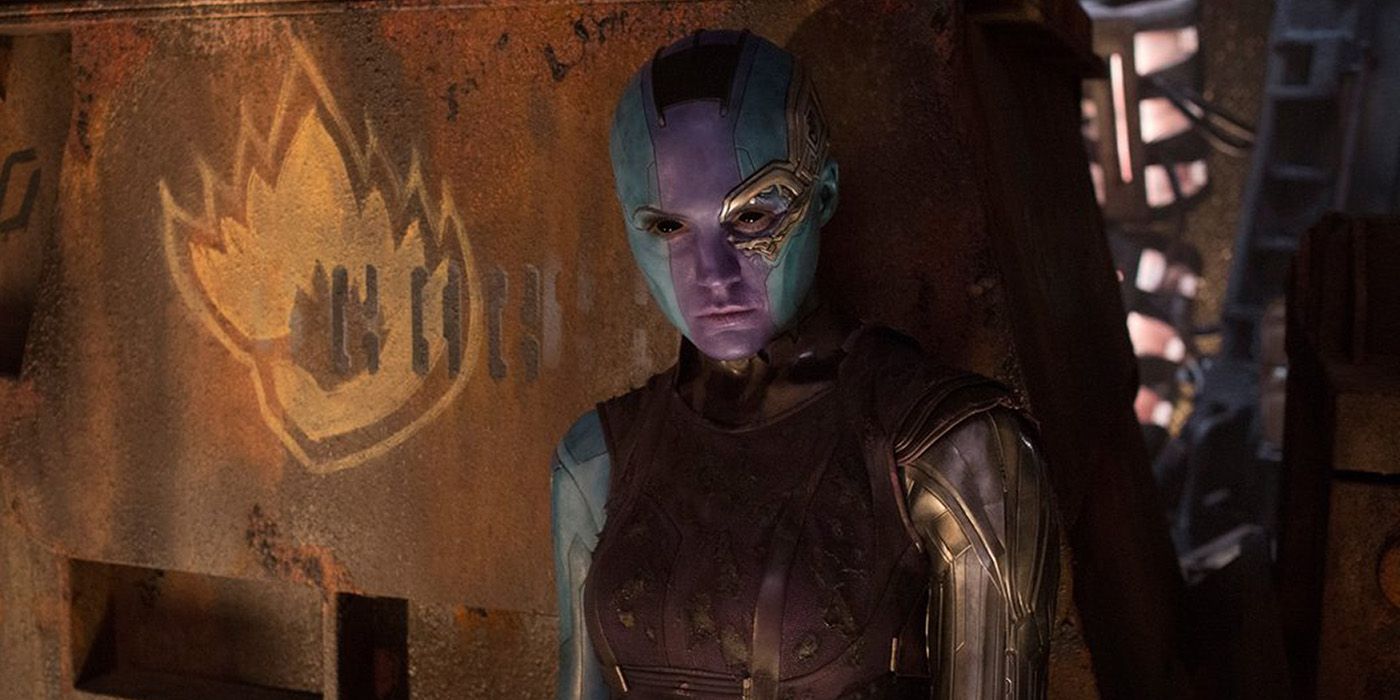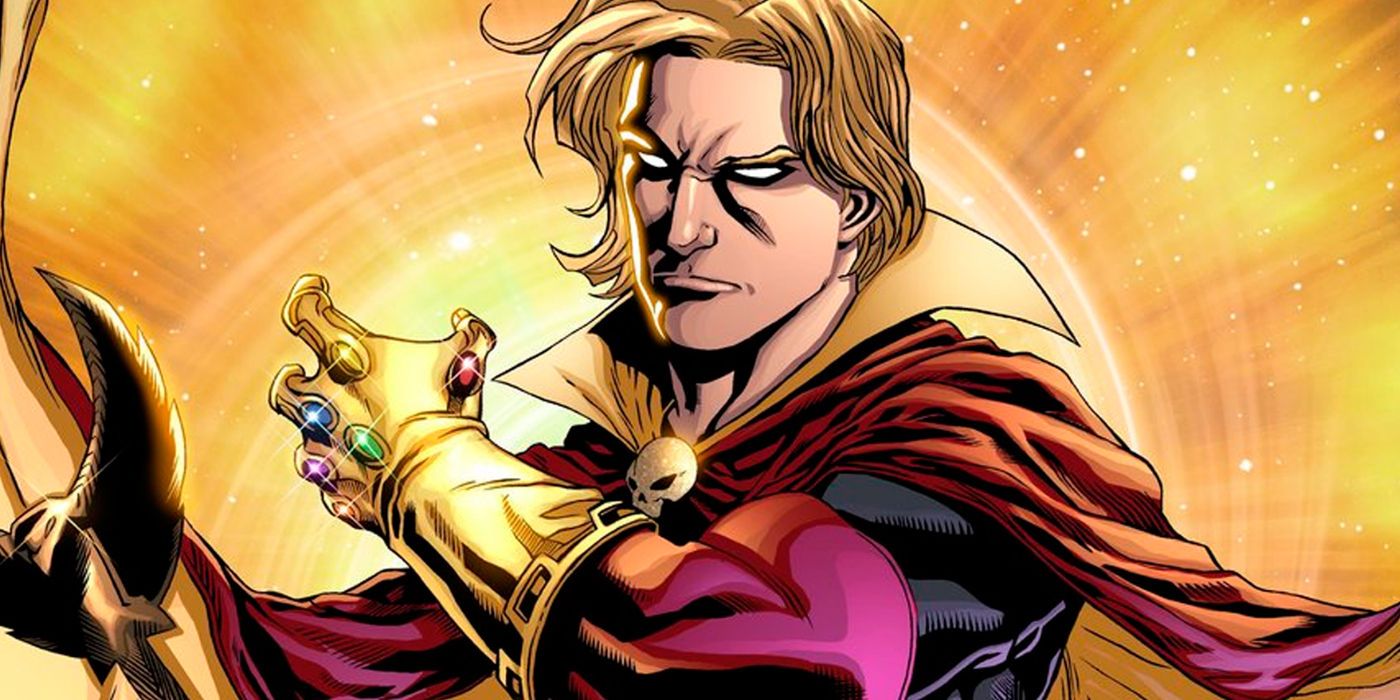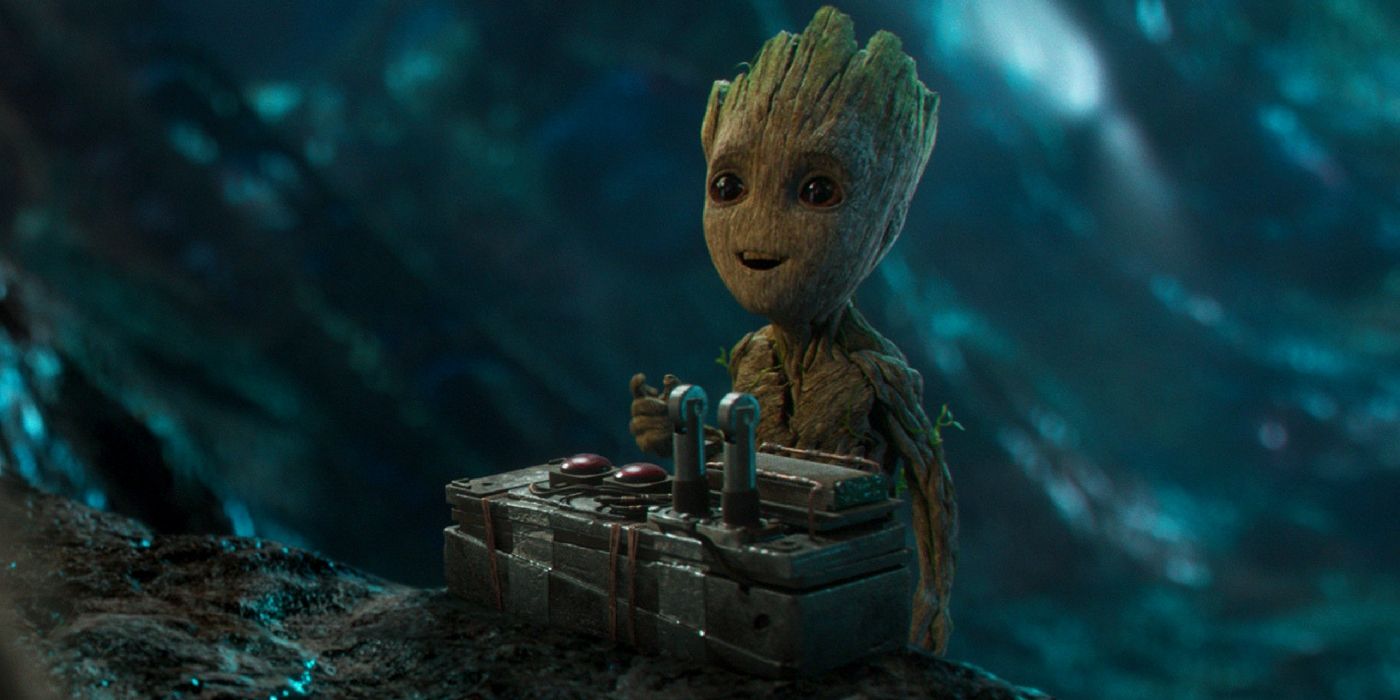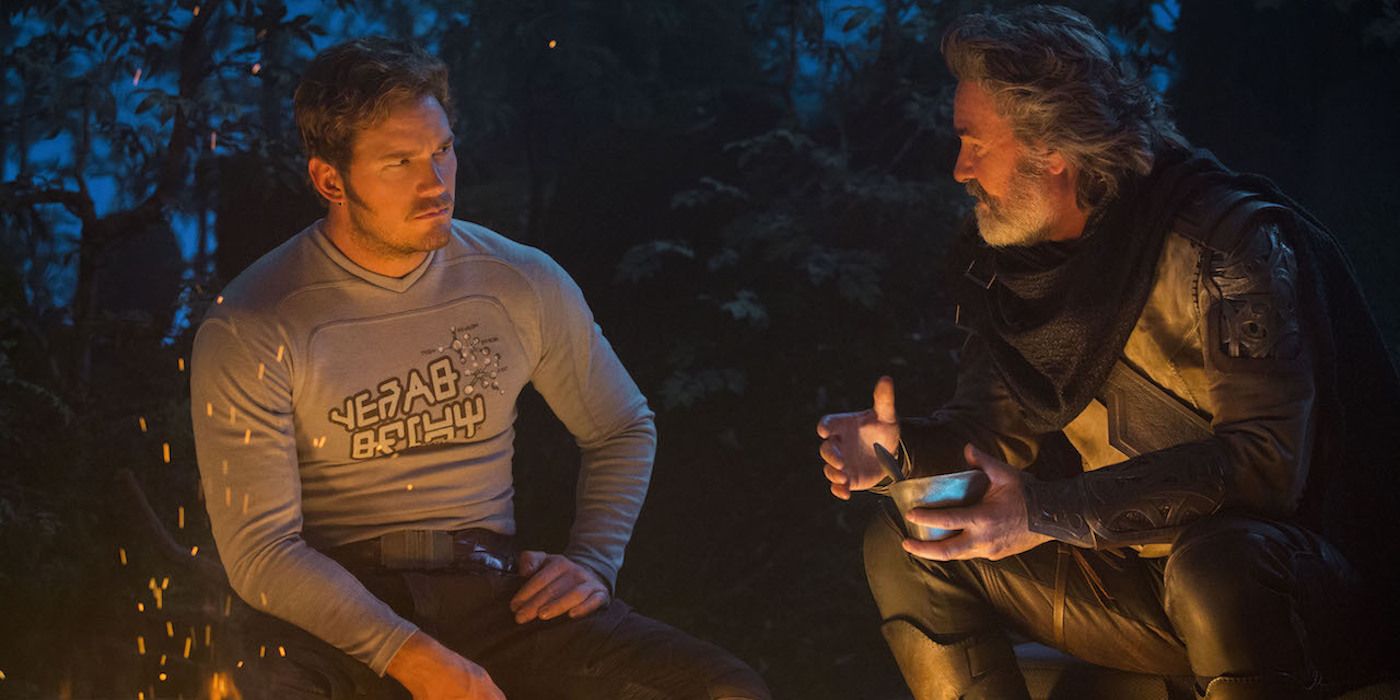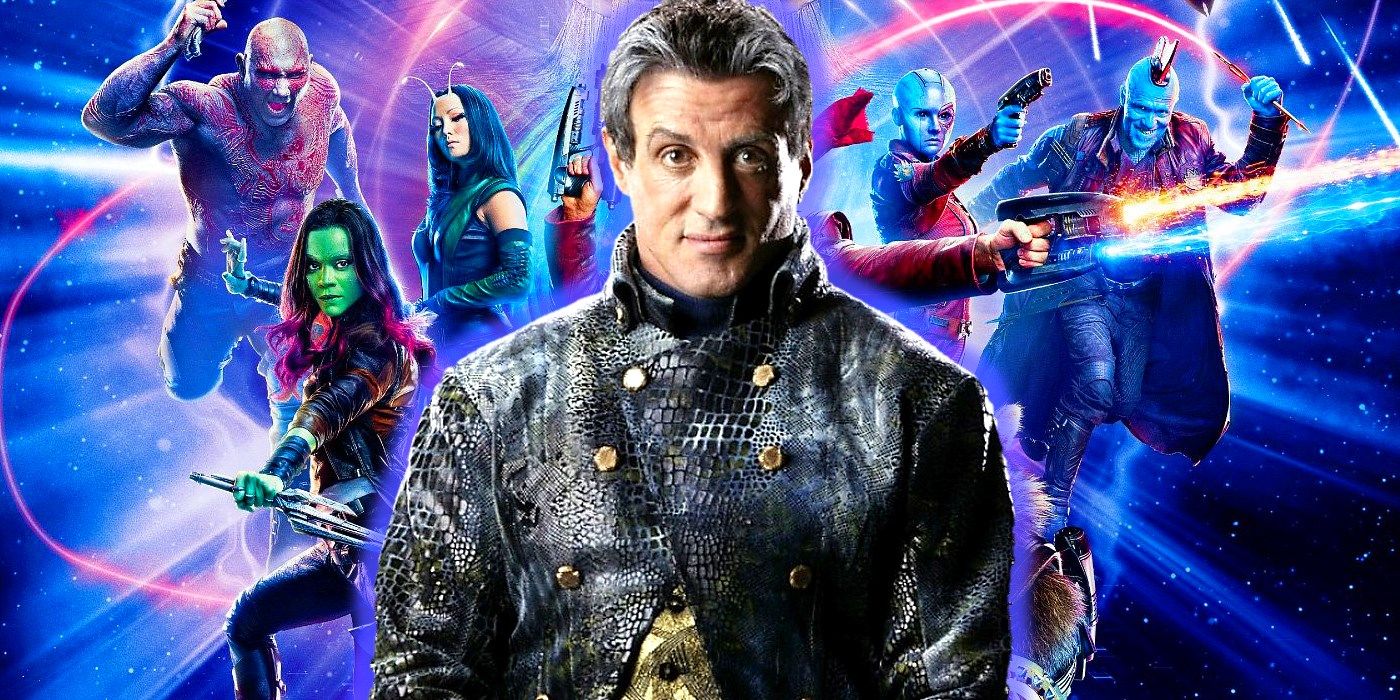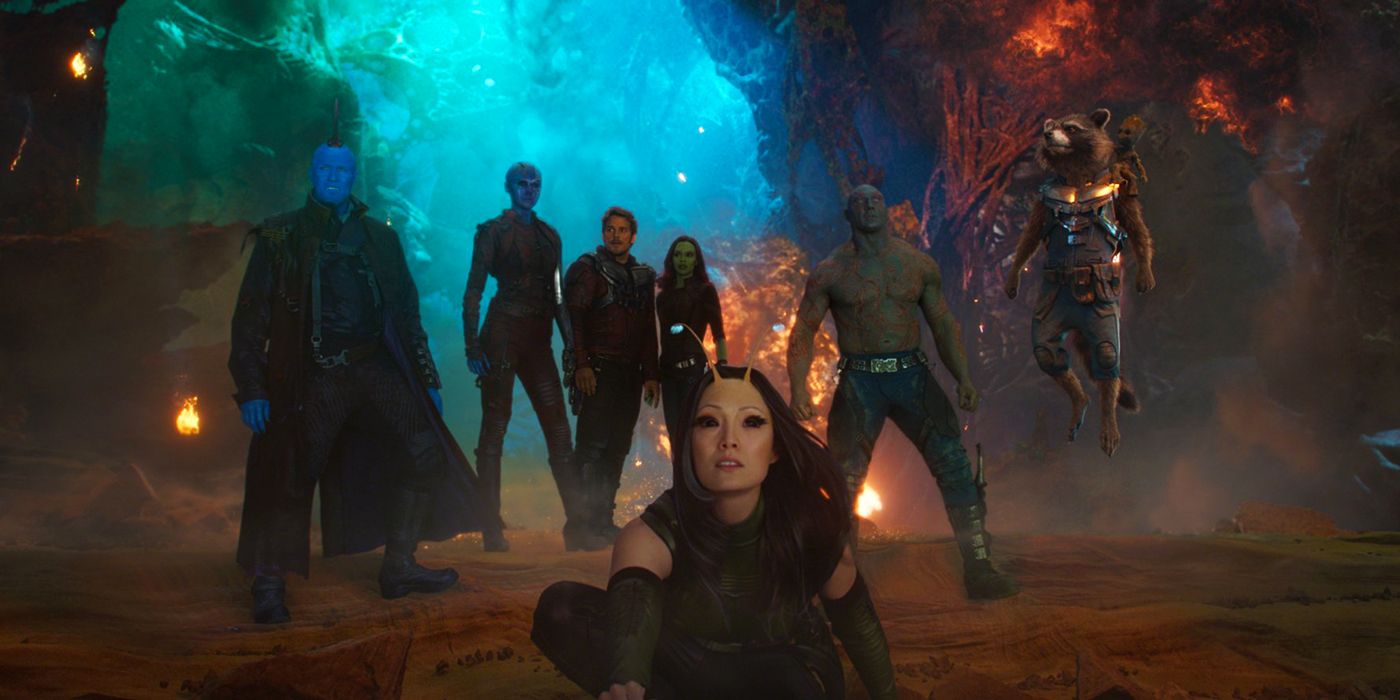James Gunn changed the scope of the entire MCU when he went full-on cosmic with the blockbuster Guardians of the Galaxy back in 2014. It was a blockbuster of a space saga, filled with epic action and relentless humor, as the director crafted a brash team led by Peter Quill (a.k.a. Star-Lord) who came indirectly into conflict with Thanos and the Mad Titan's overall ambition for galactic rule via the Infinity Stones. Guardians of the Galaxy: Vol. 2 then met Gunn expanding on the team even more, not just as a pseudo-Avengers unit in outer space, but as one fighting to stick it out as a family when Quill's mysterious heritage starts to unfold.
RELATED: Role Call: The 15 New Faces Of Guardians Of the Galaxy Vol. 2 EXPLAINED
Along with Chris Pratt's Peter Quill, Gamora, Drax, Rocket Raccoon and of course, the almost sickeningly adorable Baby Groot, have all returned to the big-screen, along with new faces, who are still on the run from Yondu's Ravagers and other scoundrels in space who are hunting the heroes. The franchise has always been praised as the most unique segment of the MCU and this movie continues to hold that notion up well, but that doesn't mean it isn't flawed. Thusly, CBR decided to look into the positives and negatives of Gunn's second outing for Marvel Studios!
SPOILER WARNING: Major spoilers ahead for Guardians of the Galaxy: Vol. 2
15 WORKED: THE OVERALL SPECTACLE
Gunn made a bold statement that no space saga has done before in terms of visual aesthetic and overall world building. This movie's C.G.I. blows away any of the Star Wars or Star Trek movies so far in terms of how gorgeous it looked amid its high-octane pace. The S.F.X. here was also spot on with Gunn's color palettes wowing in so many scenes.
From the team's opening sequence against an energy-hungry creature, to exploring the planet Ego created as his headquarters, to the space fights, to every single space jump, it was a breathless trip painted beautifully against an action backdrop. The set designs and costumes further added to the look and feel of planets like the Sovereign and Contraxia. It's no wonder Taika Waititi modeled Thor: Ragnarok in the same vein, because the adventures of the Guardians here never felt as otherworldly and entrancing.
14 DIDN'T WORK: EGO THE VILLAIN
The MCU has rarely produced intimidating villains and in the first movie; Gunn dropped the ball on Ronan, especially having Quill use a dance-off to help beat him. Here, the sequel loses track similarly in its big twist where Ego (Kurt Russell) sought out Quill, not to become the nurturing father Quill never had back on Earth or when Yondu kidnapped him for the Ravagers, but instead to use his son to help colonize the universe.
As a celestial, his genes passed down to just one of his progeny, a.k.a. Quill, and he wanted to use him as a partner or battery to spread Ego's sentience to various planets. It was predictable and felt rushed, especially after Ego constantly professed his love for Quill's mom only to reveal that he gave her a brain tumor so that he could go about his galactic mission with her no longer in mind.
13 WORKED: ENDLESS HUMOR
The first film had a lot of laughs that felt slightly forced, but in the sequel, everything was more natural and organic in terms of how the comedy was delivered, probably because we understood the characters more. Quill wasn't even the big joker here as Drax stole the show with his wry comments and dark one-liners. Even when he got really obnoxious, as seen in nearly every scene with Mantis, you still kept laughing.
For good measure, Rocket chimed in with some really funny moments as he went at it with Yondu and the Ravagers, and as expected, Baby Groot got in on the action with his silliness and inability to understand English properly. The team felt innocent, yet charming, as they taunted each other and their opponents. Quill himself marvelled at their dysfunctional behavior and eerie sense of humor, which never wavered even in the face of death.
12 DIDN'T WORK: DILUTING DRAX
In the comics, particularly the modern GotG books from Dan Abnett and Andy Lanning, Drax was less of a comedian and more of a warrior. In fact, Drax the Destroyer (as he was called) was destined to be the one to kill Thanos, which drove his entire existence. This was severely diluted in the movie with Drax and his signature knives getting air-time in the opening monster battle alone.
Instead, he was used throughout as comedy relief as opposed to the lethal badass we thought he would be. We don't mind catching kicks with him or seeing him as the team's caring muscle, but his funny attitude was incessant and at times unnecessary because we never really got to see him cut loose on his enemies. We didn't pay to see Drax the Comedian overdoing it on the jokes when he should have actually been slicing and dicing.
11 WORKED: YONDU'S DEATH
Gunn copped out on death in the first film with Groot being reborn as a baby, but here he took it up a notch, albeit with someone who wasn't an official member of the Guardians. Yondu managed to redeem himself by rescuing Quill from the clutches of Ego, and in doing so, he showed that while he may not have been Star-Lord's father by blood, he was his dad by mentorship. Yondu never turned Quill over because he suspected Ego was harvesting his offspring, and so he turned Quill into his criminal apprentice instead.
By movie's end, he did right by Quill and showed everyone how altruistic and honorable he could be, especially Rocket and Groot who came to adore him as a colleague and friend. He died flying into space with Quill as Ego imploded and, in doing so, he also won back the respect of all Ravager factions.
10 DIDN'T WORK: SILLY MANTIS
Mantis was a deus ex machina in the film that served no real purpose other than to flip on Ego, who raised her from infancy as one of his own. She stuck with him throughout all the times he killed one of his offspring, but here, we're still wondering where the motivation came from to turn on Quill's dad. This felt like another convenient plot point for a character who Gunn decided he'd give one key moment to, apart from all the other scenes where she seemed shunted in solely for comic relief.
Mantis felt like wasted potential and could have been so much more in the battlefield as per what Abnett and Lanning wrote. Her empathy features were pretty cool, especially as Ego's caretaker, but you never really connected with her actions and allegiances. Mantis just swung where the story wanted her, and was reduced to a keeper of secrets and turncoat.
9 WORKED: EPIC MUSIC
The music in this film was perfect. It surpassed the first movie in terms of how it added to the overall tone and brought even more personality, character and flair on-screen. When the music popped up, it fit each scene incredibly well and hit the notes of sentimentality needed. When Sam Cooke's "Bring It On Home To Me" was playing, for example, while Quill and Ego discussed Earth and the love his dad had for his mom, it was super emotional.
As Cat Stevens' "Father and Son" played in the closing moments with Yondu's funeral, that was also a touching scene adding to Quill realizing that he actually did have a father all this time. Cheap Trick's "Surrender" and the plethora of other tracks in the line of duty also managed to swing the film from action to drama to comedy, emphasizing that Gunn does know when and where to drop tunes.
8 DIDN'T WORK: UNSPOKEN ROMANCE
The director smartly didn't play into the obvious and overdone romantic trope with his leads the last time around, but this time seeing Quill and Gamora on the cusp of something great and heartwarming, with nothing eventually happening just didn't feel right -- especially as this sequel was more about love and togetherness in the face of death.
The constant unspoken romantic dance they're doing could at least have taken a step forward because there was more than enough room to explore it a bit and let them be more than just soldiers in cosmic wars. Gunn wouldn't have even had to be subtle because the duo clearly had chemistry, history and obviously cared for each other. One would think Quill would have delved more into hopeless romanticism after hearing of his parents' escapades, but instead, Gunn managed to give us more uncomfortable flirting between Drax and Mantis.
7 WORKED: SIBLING RIVALRY
We got a lot of insight and emotional resolution into Nebula and Gamora in this film, riffing off the hateful dynamic they had since the first movie. Nebula opened up at last as the sisters realized they couldn't kill each other, revealing all she wanted was companionship as a kid. Gamora, on the other hand, learned that a lot of Nebula's struggles was actually her fault after constantly beating her up and leaving her to torture by Thanos' hand.
After Nebula impressed in the final battle against Ego, they both came to an understanding which saw Gamora offer Nebula membership with the Guardians, only to be rebuffed. Nebula, despite her redemption, maintained a murderous vendetta against the man who raised them and vowed to kill Thanos yet again. All their issues were seemingly addressed, but Nebula still left with a hot head, reminding Gamora of their inescapable family tree.
6 DIDN'T WORK: THE POST-CREDITS
Don't get us wrong, the post-credits weren't terrible but they felt like filler and fluff meant to toy with us -- a gag reel that didn't add much importance in moving the MCU forward. We got Kraglin taking over from Yondu on Quill's team, Groot ticking off Star-Lord as a teen and Stan Lee with the Watchers -- none of which resonated because we already had a sense of these arcs in the film.
The Starhawk cameo from Sylvester Stallone was also extended with his team (an alternate version of the Guardians in the comics) reassembling in the wake of Yondu's death. This too felt neither here nor there, as we expected something with Thanos, the Infinity Stones or teasing Thor: Ragnarok. However, we got a decent one with Ayesha (from the Sovereign collective) teasing the arrival of an 'Adam,' believed to be Adam Warlock or Magus.
5 WORKED: BABY GROOT
Gunn made a smart decision to bring Groot back from the dead as Baby Groot because it was cuteness overload in this film. As usual, in just three words he brought so much vibrancy and laughs to the viewers while barely understanding a lick of English. From the opening scene, he continued his love of dance, albeit in the heat of battle, and when captured on a mutiny within the Ravagers, he then had the audience laughing while he was trying to break Rocket and Yondu out.
Even in the finale, Rocket had to school him on explosives and he followed up with an air of sentiment to this in the last 20 minutes, especially when his infamous line "I am Groot" inducted Yondu into the team before the latter sacrificed himself for Quill. Groot didn't just bring the laughs, the twig brought a spaceship load of emotions as well.
4 DIDN'T WORK: FORCING QUILL'S LINEAGE
The first movie ended on a cliffhanger with Quill's heritage as he was able to handle an Infinity Stone. Gunn failed to deliver on this intrigue however, as the arc with him here being the son of a Celestial appeared forced. It felt as if Gunn was just trying to show us Quill would be willing to sacrifice his humanity to save the galaxy when he killed Ego and lost his immortality as his son.
However, we already got Quill's self-sacrifice from the last film, so putting him through the emotional wringer again, especially as he still had issues over losing his mom on Earth, was uncalled for. There wasn't any big payoff or development in terms of Quill's evolution, as he was the same hero from before, except now he knew Yondu did right by him. Gunn tried too hard to make Quill a savior in the process.
3 WORKED: TEAM UNITY
This team has flaws just like any other and it showed in slaying monsters, escaping spaceships who were headhunting them, and with evil parents or kin who wanted to exploit or murder every member. However, they really worked through all of these debacles as a family, fighting for each other, and wanting to be together. Unlike the Avengers who felt like they had to be together, the Guardians clung to each other for dear life.
It showed when Drax and Gamora didn't want to leave Quill to die with Ego at the end, as well as in how they rescued Mantis and tried to save Yondu. If you helped them, you were family and, in the end, they were as united as ever, even incorporating Nebula into the fold. Taking down a Celestial isn't easy, but they had the wit, wiles, guts and ambition to do so -- stronger, together.
2 DIDN'T WORK: THE COSMOS FELT SMALL
This movie failed to expand the universe and connect to the rest of the MCU cosmic as solidly as its predecessor. Starhawk and his team, including the other Ravagers, were all lumped in for fan service, but it was the missed opportunities to tie in the Nova Corps and the Kree that echoed throughout. The last time they were quite prominent and we're not saying to rinse and repeat, but apart from Ayesha's people, there wasn't anything new in the grand scheme of the galaxy. What about Darkhawk and even the Cancerverse?
Ego and Mantis were fresh faces, but things like Thanos, the Infinity Stones and the Collector were more relevant. Even the Inhumans could have gotten a plug before their IMAX debut. Gunn added a lot of placeholder in this movie, but these components didn't contribute meat to the story. Things felt like the same bubble from last time.
1 WORKED: THE FINAL ACT
The climax here was one of the MCU's finest and most action-packed ever! It hit so many emotional beats as it went into an all-out brawl with Quill and Ego unleashing their Celestial powers on each other, while the rest of the squad tried to escape. Apart from the majesty of this encounter, the emotional beats quickly scrubbed out the humor and took each character for a ride.
Gamora and Nebula hustled to survive together, Drax was saving Mantis, while Rocket and Groot connected with Yondu like never before. The real tear-jerker came when Quill outlasted Ego only to be saved by Yondu, who gave his life up for the young hero he was finally ready to call a son. Every moment of this last hour resonated with substance, style and soul, proving that flaws aside, Gunn knew those smoking-hot moments when he needed to pull his creative trigger.
Thoughts on our picks? Let us know in the comments what worked or didn't work for you with this sequel!

